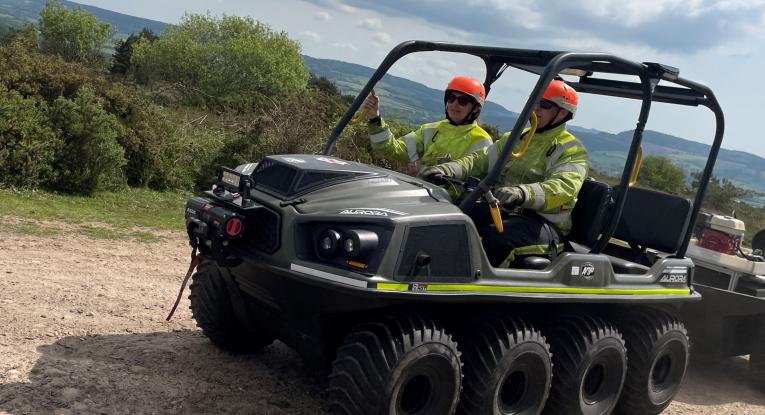Reducing the risk of wildfires during hot and dry weather
We receive queries from people worried about the risk of wildfires near their homes. Here’s our advice on what to do to reduce the risk of wildfires, or have a concern about a neighbour or long grass.

Although we are trained and resourced to deal with wildfires, we need your help to reduce the likelihood of them happening.
Most wildfires are started by human behaviour – a BBQ, campfire, discarded cigarette, or glass lying on dry ground magnifying the sun’s rays. They can also sometimes start due to a bonfire (which was intended to be controlled) getting out of control.
Help us reduce the risk of wildfires
- Please don’t have BBQs or campfires in the countryside, or on any grassland during very dry weather.
- If you’re a smoker, please take extreme care with how you put out your cigarettes and dispose of them.
- Don’t leave litter, and pick it up if you see it. Don’t leave it to someone else. Discarded litter, in particular glass bottles, pose a fire risk when the sun’s rays are magnified through it.
- Avoid having bonfires during dry spells. If you must have one, follow our bonfire safety advice. Let us know that you are having a controlled burn (call 0333 399 0014). This is so we can check in with you if we receive any 999 calls reporting a fire in your area, which stops us from sending firefighters out to bonfires when they’re not needed.
Read more about how you can prevent wildfires.
If you’re worried about a neighbour’s bonfire
If you are worried about a neighbour’s bonfire, the first thing you should do is talk to them.
Please do not call us to report someone having a bonfire, unless it is an emergency.
If someone is burning bonfires regularly this may be considered a nuisance. Check your local council website for information on how to report nuisance bonfires.
Is long, dry grass a fire risk?
Any length of grass needs an ignition source to catch fire. It cannot spontaneously combust. However, grass fires can start and spread quickly, travelling considerable distances at speed. Because of how fine grass is, it burns very fast. The taller and drier the grass, the more intensely it will burn. Shorter grass will have a lower flame height and the fire will be easier to control. Grass under 10cm is a lower risk.
It is important to remember that a fire must start with ignition, so we can all take responsibility for reducing the risk of grass or wildfires:
- Put out and discard cigarettes carefully
- Don't drop litter
- Avoid having campfires or BBQs.
If you have concerns about overgrown grass near your home
If you are particularly concerned about overgrown grass near your home, consider:
- having a hosepipe or water easily available
- trimming back your own hedges, plants and grass to create more space between your home and the problem area
Reporting overgrown grass or vegetation near your home
If you’re concerned about an area of land and you don't know who owns it, you could ask your neighbours, or contact your local council. Remember that many councils will be deliberately leaving grass longer as part of their rewilding programme.
Please only call us if it is an emergency.

